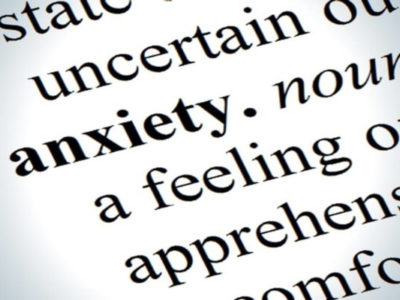An aching gut, stomach in knots, sore throat and extreme fatigue make up a pretty hefty list of symptoms to handle all at once. Many people see this as a traditional physical illness. For me, those symptoms became my reality due to the anxiety that plagued me my freshman year of college. These unbearable struggles really began to surface when a series of unfortunate events turned my perpetual bad mood into a sadness I needed professional help to escape.
The beginning of my freshman year saw few bumps in the road. I cried like Elle Woods after a breakup the first night, but aside from that I made instant friends and loved the school’s extensive orientation program. I didn’t expect the truck load of problems that would come during midterm season in October. My birthday just passed unnoticed, and I felt things getting rough. Nineteen didn’t really mean anything significant, and the few good friends that I did make were too overwhelmed with homework to go out and celebrate.
After the birthday fiasco, I found myself in a bit of a funk, even amidst my occasional adventures around Chicago and schoolwork. But the stress began to knock the wind out of me. My first midterm in my Intro to Psych Class should’ve been a piece of cake, but I found myself beginning to crack.
Later I got a Facebook message from one of my best friends saying that he didn’t want to be my friend anymore. The message came out of nowhere, and I didn’t get much of an explanation or response. Just abandonment. I cried some more, but eventually I shoved it into some back corner of my mind out of harm’s way.
As I started skimming psych chapters for the fiftieth time, my stomach in some of the tightest knots I had ever experienced, my roommate asked me why I never made it to a dorm event that day. I told her I needed to study, which lead to our first major fight. At this point, I felt lost. At around ten at night I still didn’t see an end to my studying. I tried to calm down so I could go study somewhere else, but I felt the physical symptoms of anxiety beginning to tear me apart. My tears wouldn’t stop. My body shook and I feared I would get sick. I ultimately found refuge in the bathroom, where I tried to call my school’s hotline for any sort of guidance. However, I felt so desperate that when I was put on hold, I hung up and called my mother instead.
Even though I talked to everyone from my RA to my mom, in the end, nothing helped. That’s the scariest part: when you follow the steps they teach you at those support groups and try to act responsible by reaching out to others, it still doesn’t make anything better.
At first, something stopped me from asking for help. I didn’t know what to say; even my psych book told me that depression took six months to develop, and the anxiety seemed only circumstantial. Did I really have anything worth talking about?
A few days later, I went to one of the walk-in sessions a counselor was holding on campus. He ended up being the executive director of CAPS (Counseling and Psychological Services) at my school. Although the counselor didn’t provide many concrete suggestions, his comforting personality encouraged me to find other people at my school who would support me without judgment.
Things didn’t improve immediately. To this day, I sometimes find myself in similar bouts of physical and mental struggles. I still stare at my phone knowing I should email that counselor or call the hotline, but I can’t bring myself to do it. Regardless, the options still comfort me. Speaking out will always lead to change for me, even if the light at the end of the tunnel is still pretty far.



















